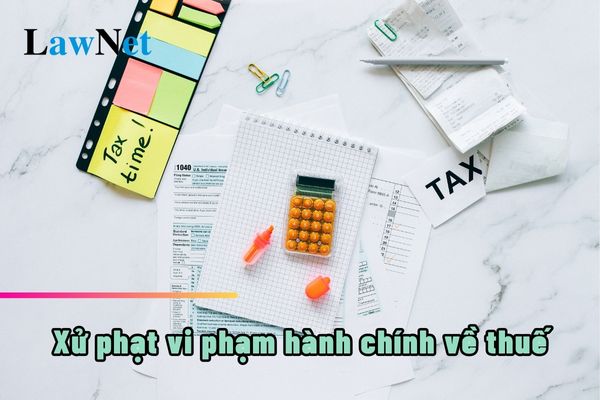Who Are the Subjects Subject to Administrative Sanctions for Tax Violations?
Who are subject to administrative penalties for tax violations?
Based on Article 3 of Decree 125/2020/ND-CP, the subjects liable to administrative penalties for tax violations include:
[1] Taxpayers committing administrative violations concerning tax and invoices.
In cases where taxpayers authorize other organizations or individuals to handle tax obligations, and the law on tax and tax management stipulates that the authorized party must perform those obligations, if the authorized party commits administrative violations set out in this Decree, such organizations or individuals authorized shall be penalized under this Decree.
In instances prescribed by the law on tax and tax management where organizations or individuals have the obligation to register, declare, and pay taxes on behalf of taxpayers, and if these organizations or individuals commit administrative violations stipulated in this Decree, they shall be sanctioned for administrative tax violations in accordance with the regulations in this Decree.
[2] Organizations and individuals involved in administrative violations regarding tax and invoices.
* Taxpayers as organizations subject to administrative penalties for tax and invoice violations include:
- Enterprises established and operating in accordance with the Law on Enterprises, the Law on Investment, the Law on Credit Institutions, the Law on Insurance Business, the Law on Securities, the Law on Petroleum, the Law on Commerce, and other legal normative documents; subsidiaries of enterprises, business locations directly declaring, paying taxes, and using invoices;
- Public and non-public service units;
- Organizations established and operating under the Cooperative Law;
- Foreign organizations, enterprises, branches, representative offices of foreign business entities, operating offices of foreign contractors in Vietnam conducting business or having income arising in Vietnam;
- State agencies committing administrative violations involving tax and invoices where such acts fall outside their assigned state management duties;
- Cooperatives and other organizations established as per legal regulations.

Who are subject to administrative penalties for tax violations? (Image from Internet)
Does using an expired tax invoice constitute illegal use of an invoice?
According to Article 4 of Decree 125/2020/ND-CP which stipulates:
The act of illegal use of invoices and documents; unauthorized use of invoices and documents
1. The use of invoices and documents in the following cases constitutes illegal use of invoices and documents:
a) Fake invoices, documents;
b) Invoices, documents not yet usable, having expired;
c) Invoices suspended from use during a period of enforced cessation, unless permitted by tax authorities;
d) Electronic invoices not registered for use with tax authorities;
đ) Electronic invoices lacking a tax authority code when required;
e) Purchase invoices for goods or services with invoice dates from when the seller was determined by tax authorities to be non-operational at their registered business address;
g) Purchase invoices for goods or services with invoice dates before the seller was adjudged non-operational at their registered business address, or lacking tax authority notifications on the seller's non-operational status at the registered address, yet legal or other competent bodies have concluded those invoices or documents are illegal.
...
Therefore, according to the regulations, using tax invoices that have expired is indeed one of the acts of illegal use of invoices.
Is the Post-clearance Audit Department considered a tax administration authority?
Based on Article 2 of the Law on Tax Administration 2019, the stipulations are as follows:
Applicable entities
1. Taxpayers include:
a) Organizations, households, business households, and individuals paying taxes as prescribed by tax law;
b) Organizations, households, business households, and individuals paying other state budget revenues;
c) Organizations and individuals responsible for tax withholding.
2. Tax administration authorities include:
a) Tax authorities including the General Department of Taxation, Tax Departments, Regional Tax Departments;
b) Customs authorities including the General Department of Customs, Customs Departments, Post-clearance Audit Department, and Sub-departments of Customs.
In accordance with the above regulations, the tax administration authorities consist of:
- Tax authorities including the General Department of Taxation, Tax Departments, Regional Tax Departments;
- Customs authorities including the General Department of Customs, Customs Departments, Post-clearance Audit Department, and Sub-departments of Customs.
Thus, customs authorities are also considered part of the tax administration authorities.

